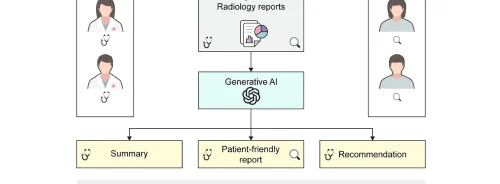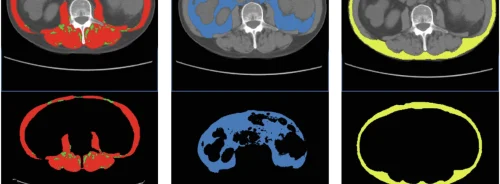Prostate cancer (PCa) treatment strategies are evolving, with increasing interest in focal therapy (FT) as a less invasive alternative to traditional prostatectomy and radiation therapy. FT aims to eradicate cancer while preserving quality of life, making accurate cancer contouring crucial for treatment success. However, conventional methods often fall short due to the cognitive complexity involved in integrating imaging, pathology, and clinical data. This results in systematic underestimation of cancer extent, complicating patient-specific therapy planning.
A recent multireader multicase study highlighted significant shortcomings in standard-of-care (SOC) cancer contouring methods. Experienced urologists and radiologists consistently underestimated clinically significant prostate cancer (csPCa) extent when relying on cognitive contours. These contours, manually delineated based on MRI appearance, tended to be small and overly specific, failing to encompass the entire tumor volume accurately. This limitation contributes to variable rates of residual disease observed in focal treatment trials.
AI-Driven Precision Medicine: Enhancing Prostate Cancer Contouring and Treatment Decision-Making
In contrast, AI-assisted contouring emerged as a transformative solution. Utilizing AI algorithms, which integrate multimodal clinical data, including MRI and biopsy reports, significantly enhanced contouring accuracy. The AI software, validated against whole-mount histopathology slides as ground truth, demonstrated superior performance in delineating csPCa compared to both cognitive and hemigland (whole cancer-bearing hemisphere) contours. This technological advancement not only improved sensitivity but crucially increased specificity, minimizing the negative margin rate—a critical factor in treatment outcomes.
The study’s findings underscored AI’s potential to revolutionize clinical decision-making in prostate cancer treatment. By providing more accurate and patient-specific tumor delineations, AI enables urologists to recommend FT with greater confidence, potentially reducing unnecessary treatment of benign tissue while ensuring comprehensive cancer treatment. This shift towards precision medicine is pivotal, especially considering the limitations of current SOC practices in patient selection based solely on MRI and systematic biopsy.
Expanding AI's Role in Prostate Cancer Care: From Treatment Decisions to Biopsy Enhancement
Moreover, AI-assisted contouring influenced therapeutic decisions in over a quarter of cases studied. Clinicians, armed with AI-generated cancer maps, were more inclined to opt for FT over whole gland therapy, aligning with recent trends towards personalized oncology care. The technology’s impact extended beyond treatment planning; it also enhanced biopsy strategies, facilitating targeted sampling of higher-risk regions to improve diagnostic accuracy and reduce unnecessary procedures.
Despite these advancements, the study acknowledged several limitations. The data primarily originated from a single institution, potentially limiting its generalizability to broader patient populations. Moreover, the ground truth for cancer extent was established by a single expert pathologist, introducing potential observer bias. Future research efforts will necessitate validation across diverse patient demographics and collaboration among multiple pathologists to ensure robust algorithm performance.
AI-Powered Precision Medicine: Advancing Prostate Cancer Care Towards Personalized Therapies
Looking ahead, AI-assisted cancer contouring holds promise for optimizing targeted therapies and refining patient selection criteria. By enhancing negative margin rates and refining treatment plans based on precise tumor mapping, AI has the potential to improve oncologic outcomes while minimizing treatment-related side effects. This paradigm shift towards AI-driven precision medicine represents a significant stride towards personalized, effective prostate cancer management.
In conclusion, AI-assisted cancer contouring represents a critical advancement over conventional methods, offering clinicians a powerful tool to navigate the complexities of prostate cancer treatment. As further studies validate its efficacy and integration into clinical practice, AI promises to redefine standards of care, offering patients more effective, tailored therapies with improved outcomes and quality of life.
Source & Image Credit: The journal of Urology







